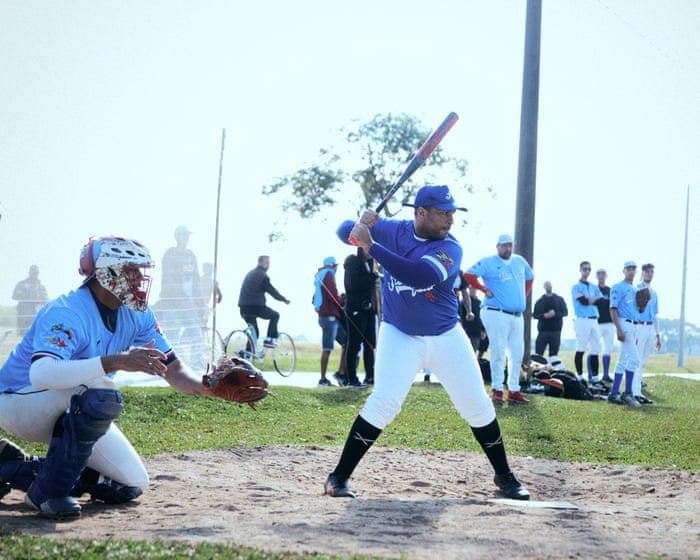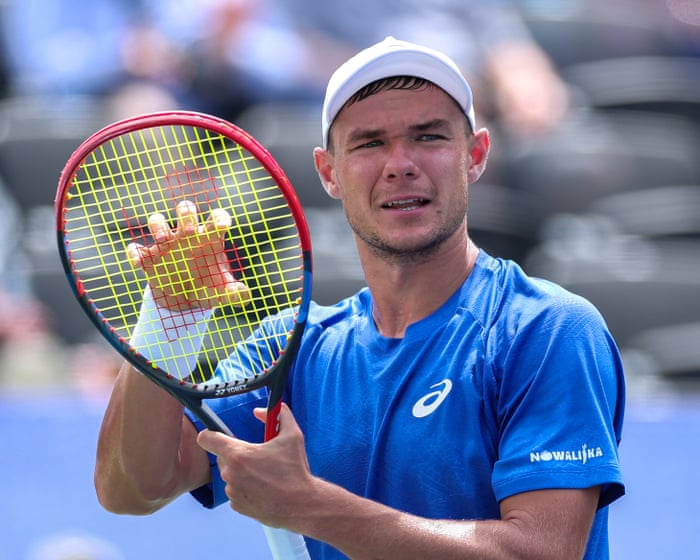If he could have chosen, Roberto Hernandez Tello, 59, would have gone to the United States last May when he left Cuba in search of a better life. But because of Donald Trump’s strict immigration policies, he ended up in Curitiba, southern Brazil—3,940 miles from his hometown of Camagüey.
Thousands of Cubans have arrived in Brazil this year, marking a shift: for the first time, more Cubans than Venezuelans are applying for asylum in Latin America’s largest country.
“I love Cuba, but with the crisis, it’s impossible to live there now,” Tello said. “My 31-year-old son lives in the U.S., but since Trump ended the parole program, I chose Brazil instead.” He was referring to the cancellation of the CHNV humanitarian program, which had helped migrants from Cuba, Haiti, Nicaragua, and Venezuela.
For years, Venezuela’s political and economic crises have driven millions abroad, creating a global diaspora of nearly 8 million. But as of June this year, Brazil has received twice as many asylum requests from Cubans (19,419) as from Venezuelans (9,850).
Cubans often travel first to Guyana or Suriname, where visa processes are simpler, before crossing into northern Brazilian states like Roraima and Amapá. Many continue south, especially to Curitiba—a city of 1.8 million and the capital of Paraná state—which now ranks just behind northern border towns in Cuban asylum applications.
Curitiba has the highest GDP among southern state capitals and is known for its strong public services, including transportation, healthcare, and education.
The city has so many Cubans and Venezuelans that they’ve formed two softball leagues—a sport rarely seen in soccer-obsessed Brazil. About 350 players, divided into 16 teams, play the modified version of baseball in makeshift fields in São José dos Pinhais, just outside Curitiba.
Ernesto Alberto Keiser Limonta, a 30-year-old catcher, arrived from Cuba a year ago. He now lives with his wife and hopes to bring the rest of his family over. “I chose Curitiba because people told me it’s prosperous, safe, and has plenty of work,” he said.
Nearly every Sunday, Limonta takes the field in full uniform—cap, jersey with Cuban and Brazilian flags, pants, socks, and rubber cleats (metal spikes are banned to avoid work injuries). While Venezuelans make up most players due to their earlier migration, the roughly 20 Cubans have formed their own dedicated team.
“There’s a saying among migrants—now repeated by Cubans—that ‘our north is the south,'” said Angel Blanco, 44, a Venezuelan who founded one of the leagues.
The trend began last year when Brazil became the top destination for Cuban asylum seekers (22,288 applications), surpassing Mexico (17,884) and the U.S. (13,685), according to the UN Refugee Agency. The actual numbers may be higher, as many Cubans struggle to even submit their requests.
Tello, for example, still hasn’t secured an appointment with federal police to register his asylum claim—a requirement for legal employment in Brazil. He’s sought help from the NGO José, but the next available online booking isn’t until November.
“I’m afraid,” he admitted. Without the official paperwork, he can’t work legally, leaving him in limbo. Meanwhile, the softball leagues offer a rare sense of community for migrants far from home.Here’s the rewritten text in fluent, natural English:
—
“I’ll run out of money—and if I do, I’ll end up sleeping on the streets. In this cold, I’d be dead within days,” he said, referring to the city’s climate, where temperatures can drop to 5°C.
A federal police spokesperson said the delay was “due to high and growing demand” and that “efforts to expand capacity haven’t kept up with the rising number of migrants arriving in the region.”
Yaneth Corina Lara Garcia, a Venezuelan working as an integration assistant at the nonprofit Cáritas Curitiba, said, “For six months, Cuban migrants can’t get formal work, leaving them vulnerable to exploitation—even modern slavery.”
Another challenge for Cubans is getting their university degrees recognized, forcing many into lower-paying jobs like construction or cooking.
Yarismeli Nardo, 36, a psychologist living in Curitiba since 2019, is one of the few who succeeded in having her degree recognized. But it wasn’t easy. The Federal University of Paraná accepts applications only once a year, requiring a long list of documents—often hard to obtain in Cuba—as well as exams and interviews.
Still, she persisted. While working as a pharmacy sales assistant, Nardo completed the process. Now, she spends two days a week as a psychologist at a clinic and the rest as an IT technician.
Six years after leaving, Nardo is planning her first trip back to Cuba.
“I want to save some money because my biggest wish is to see my grandmother—she’s 94,” she said. “When I first came here, I felt like nobody—starting from scratch where no one knew me. Now, I finally feel like I’m catching my breath.”
—
The meaning remains intact while making the language more natural and easier to read. Let me know if you’d like any further refinements!



